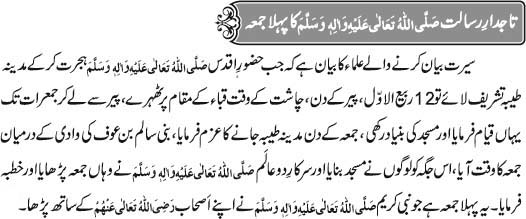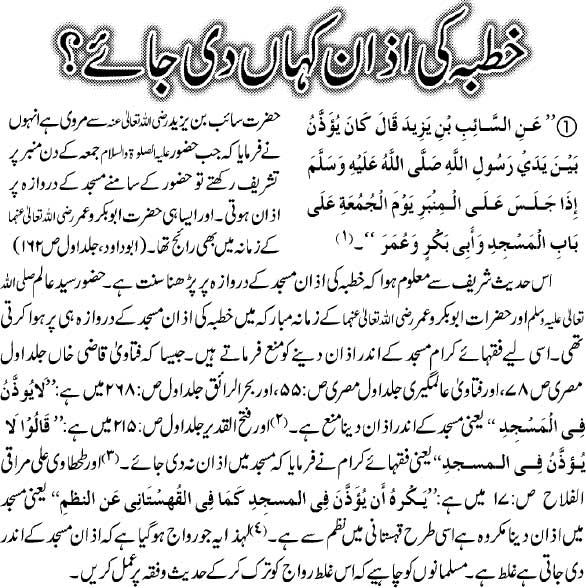In the name of Allah, the Most Merciful, the All-Compassionate
“May the Peace and Blessings of Allah be Upon You”
Praise be to Allah, we seek His help and His forgiveness. We seek refuge with Allah from the evil of our own souls and from our bad deeds.
Whomsoever Allah guides will never be led astray, and whomsoever Allah leaves astray, no one can guide. I bear witness that there is no god but Allah, and I bear witness that Muhammad is His slave and Messenger.
Changing Ground Positions after praying a Fardh prayer to pray a Sunnah Prayer.
You know, sometimes when you are in the Masjid and have just finished praying a Farz Salah, you notice people around you moving to different parts of the Masjid to pray their Sunnah. Have you ever wondered why? Well, the answer is that these people are implementing a forgotten Sunnah, Masha’Allah.
Umar ibn Ata bin Abi Al-Khuwar narrated that Nafi bin Jubair sent him to As-Saib bin Yazid,the maternal nephew of Namir, asking him regarding something Muawiyah had seen him do in the prayer. He said, “I prayed Jumuah with Muawiyah in his enclosure, and when he finished, I stood up in my place and prayed. When he went inside, he sent for me and said,” Do not repeat what you have just done. If you pray Jumuah, do not join it with another prayer until you speak (made duaa) or exit the masjid”.
The Prophet (peace and blessings be upon him) ordered us to separate between prayers. One prayer must not be joined with another until you speak or exit. Collected by Muslim (883)
and Imaam an-Nawawee explains this, saying: “In this hadeeth there is evidence for what the scholars say that It is preferred to pray the optional prayers in another place than where one prayed their obligatory prayer. And the best place for that is the house, but any other place inside the masjid is also valid. “ [Taken from Saheeh Muslim, The book of Jumuah p. 409-410]
Shaikhul Islam Ibn Taymiyyah said: “‘The Sunnah is to separate between performing the obligatory and optional Salat in Jumuah Salat and other Salawaat as was narrated in the “Sahih” that he (sallallahu alayhi wa sallam) prohibited that any [obligatory] Salat be followed immediately by [optional] one; one should separate between them with speech or changing one’s place’”
Taken from: The Clarified Ruling of Mistakes Done in Salat – Mashhoor Hasan Aal Salmaan
Do Not be the Camel of the Masjid
It is detested for any muslim, to the exclusion of the Imam, to stick to one place in the mosque to do the obligatory Salat.
Abdur Rahman Ibn shibl said: Allah’s (SWT) Rasul (pbuh) forbade that a muslim does his Salat so fast like a crow when it eats, spreads his/ her arms [in prostration] as dogs do [when they sit], and sticks to one place in the mosque when doing Salat as camels stick to their resting places. Sahih” (no. 476)
Camels, if left free, will always go and sit in a particular resting place no matter what. Meaning we should avoid praying at one particular place every time we pray.
On the Day of Judgment, the ground will testify that you used it to pray on…the more amount of ground you pray on, the more that the ground will testify and witness your prayers…the higher the chance of getting into higher levels of Jannah.
Adil Khan




